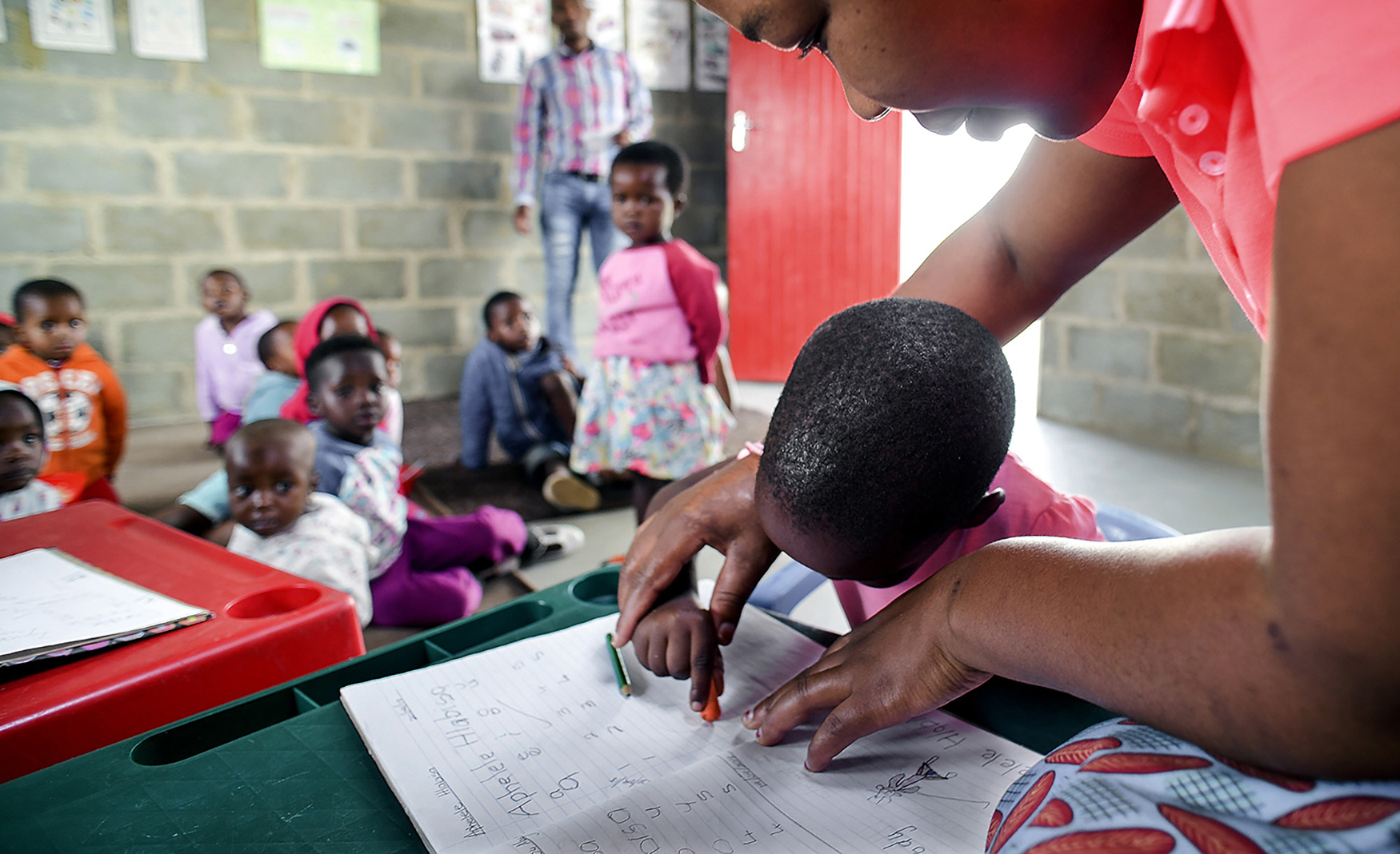On 13 March, the government reaffirmed its commitment to early childhood development (ECD) by retaining the additional R10-billion allocation in the 2025 budget.
This is a significant victory for young children and ECD providers across the country, made possible through the combined efforts of political leadership, civil society advocacy and the many voices that have championed early learning as a national priority. It is a moment worth celebrating – proof that when government, civil society and communities work together, real progress is possible.
Now, our collective effort must shift towards ensuring Parliament supports this historic investment.
Nobel prize-winning economist James Heckman says there is unequivocal evidence that supporting young children in the early years (from birth to age five) is one of the most significant human capital investments that a country can make.
 Nobel Prize-winning US economist James Heckman. (Photo: EPA-EFE / Zsolt Sigetvary)
Nobel Prize-winning US economist James Heckman. (Photo: EPA-EFE / Zsolt Sigetvary)
An investment in ECD is directly associated, therefore, with crucial returns in knowledge and skills production, wealth generation and productivity. ECD is also the very foundation for an adult’s social skills which allow for constructive civic dialogue, contextual awareness in entrepreneurship and creative industries, and emotional regulation in high-stress contexts.
Additionally, the input costs of investing in children’s futures are also lowest in early childhood, even in absolute values.
As children’s developmental milestones are cumulative, it becomes more costly to reach these milestones later in childhood. The cost of an infant clinic screening and proactive nutrition support, for example, is far lower than the cost of symptomatic treatment for children with nutritional stunting.
 An ECD practitioner works with children at Kopanang ECD centre in the rural Nquthu District of KwaZulu-Natal. (Photo: Ilifa Labantwana)
An ECD practitioner works with children at Kopanang ECD centre in the rural Nquthu District of KwaZulu-Natal. (Photo: Ilifa Labantwana)
The cost of ensuring a young child has essential literacy and numeracy skills is far lower than the cost of implementing an individualised support programme which could have been avoided. Combined, this creates a well-established multiplier effect, which is sufficient reason for any growth-focused budget to ensure ECD is funded.
As our President recently stated: “Children from poor families benefit most from access to ECD. As the learning journey progresses, quality ECD is also linked to better transitions into high school, lower repetition and dropout rates and better academic performance overall.”
ECD is not just a moral imperative–it is an economic necessity.
ECD more than just an investment in children
Beyond its well-documented impact on children’s development, ECD is also a key driver of economic empowerment and job creation. ECD programmes are deeply rooted in communities, largely owned and operated by black women.
Investing in ECD not only has massive future returns – it supports in real-time the sustaining of livelihoods and promotes economic mobility.
Implementation of the Department of Basic Education’s 2030 Strategy is expected to create 70,000 care and early learning enterprises and 320,000 new jobs, many of which will be in poor, rural and township areas.
This is the kind of economic intervention that directly addresses unemployment and inequality while strengthening the nation’s growth trajectory. By investing in the women-led ECD workforce, we help ensure that the next generation is better equipped to enter the workforce. This also strengthens the ECD sector, enabling it to meet the increasing demand for skilled professionals in the care economy.
ECD is also a deeply gendered issue. Early learning programmes not only create jobs for those providing care and stimulation, but they can also enable parents and caregivers – primarily women in South Africa – to study, seek employment, or work.
 ECD is not just a moral imperative – it is an economic necessity. (Photo: Gallo Images / Misha Jordaan)
ECD is not just a moral imperative – it is an economic necessity. (Photo: Gallo Images / Misha Jordaan)
Harambee’s learning brief highlights that unpaid care work is a major barrier to women’s participation in the labour market. With 45% of young women (aged between 15 and 34) not engaged in employment, education, or training, it is imperative that government adequately resources the ECD sector to ensure broad access to early learning programmes.
The DBE’s bold 2030 strategy includes the Bana Pele Mass Registration Drive, infrastructure support, the extension of subsidy coverage and the increase in the subsidy value. Crucially, realising these goals is only possible if Parliament approves the R10-billion ECD allocation.
A call to action
As Parliament now navigates the difficult trade-offs in this Budget, we recognise the immense pressure to make hard and brave fiscal decisions. We also reaffirm our commitment to a revenue model that is progressive rather than regressive, ensuring that social spending prioritises those who need it most.
Members of Parliament need to remember that they serve as representatives of the people of this country and we remind them of the constitutional imperative to make decisions that are in the best interest of our children, ensuring they have the foundation they need to thrive.
 ECD is a key driver of economic empowerment and job creation. (Photo: Gallo Images / Luba Lesolle)
ECD is a key driver of economic empowerment and job creation. (Photo: Gallo Images / Luba Lesolle)
We do not underestimate the complexity of these choices, but we must emphasise that investing in ECD is not just another budget line item – it is a fundamental and high-return investment in South Africa’s future.
Government investment in ECD demonstrates a commitment to social responsibility and enhances the nation's future. Unlike other forms of spending, ECD delivers a unique multiplier effect: it supports young children’s development, drives job creation – particularly for women – and strengthens long-term economic productivity.
In a constrained fiscal environment, the most strategic choice is to invest in interventions that yield the highest social and economic returns. ECD is precisely that kind of investment. It is too good to ignore. DM
Zaheera Mohamed is the CEO of Ilifa Labantwana. Grace Matlhape is the CEO of SmartStart. Tess Peacock is the Executive Director of the Equality Collective. Warren Farrer is the CEO of the Do More Foundation.




 ECD is also a key driver of economic empowerment and job creation. (Photo: Gallo Images / Luba Lesolle)
ECD is also a key driver of economic empowerment and job creation. (Photo: Gallo Images / Luba Lesolle)